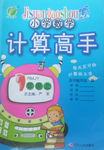题目内容
This modern three-star hotel _______ close to the city center is attractive.
| A.situated | B.situating | C.is situated | D.is situating |
A
解析试题分析:考查非谓语动词作后置定语。Be situated to/in/on 坐落于,此处表状态,situated close to the city center相当于定语从句which/that is situated close to the city center,作定语修饰 hotel
考点:考查非谓语动词作后置定语。
点评:非谓语动词作后置定语,关键看它与所修饰词之间的关系,确定主被动,同时注意现在分词表进行,过去分词表完成,不定词表将来。但有些过去分词不表被动而表状态,如在短语:be situated in,be seated,be located in/to,be faced with ,be lost in,be dressed in中等

 计算高手系列答案
计算高手系列答案This modern three-star hotel _______ close to the city center is attractive.
| A.situated | B.situating | C.is situated | D.is situating |
请认真阅读下列短文,并根据所读内容在文章后表格中的空格里填入最恰当的单词。注意:每空格1个单词。
Cross-Cultural Solutions (CCS) is a non-profit organization founded in 1995, widely known as the leading organization in the field of international volunteering, with more than 4,000 volunteers each year. CCS has a worldwide staff(员工、团队) of more than 300 people, and operates in 12 countries, with administrative(行政的) offices also located in the United States, the United Kingdom, Canada, and Australia. It offers volunteer programmes in 12 countries in Africa, Asia, Eastern Europe and Latin America.
Cross-Cultural Solutions’ volunteer programmes in China are located in Xi’an, the crossroads of Western and Eastern China, and the starting point of the Silk Road. Culturally, Xi’an is a mixture of the ancient and modern worlds. Home to the famous terracotta army, Xi’an was once the imperial capital of China. The city’s ancient history is embodied by the huge stone walls that surround the city centre, originally intended to protect the city from invasion. In the modern world, Xi’an is the largest capital city in Central and Western China. Today, with a population of approximately eight million, this modern city still reflects its rich history and culture.
China’s diverse population is well represented in Xi’an’s Han and other minorities. Volunteering in Xi’an will provide you with opportunities to connect with individuals from a variety of backgrounds, exposing you to the wide scope of Chinese culture, one of the largest and most ancient cultures in the world.
Through our cultural and learning activities in China, you will see the work of local artists, visit the site of the famous ancient terracotta(兵马俑) army, participate in weekly Chinese classes, and engage in lively discussions on Chinese culture and society. Activities may also include cooking classes or visits from experts in the practice of traditional Chinese medicine and a local painter skilled in the unique arts of Chinese painting and calligraphy(书法). Guest speakers may also cover topics such as Chinese folklore(民间传说,民俗;民俗学)and traditional Chinese music. Many volunteers choose to participate in regular visits to local universities to meet with students interested in English conversation and cultural exchange.
CCS offers the following programmes in Xi’an, China:
t Volunteer Abroad---- two to twelve weeks
t Intern Abroad---- three to four weeks
t Insight Abroad---- one week
| About Cross-Cultural Solutions | ||||
| l Founded in 1995, it is a (1)_______ in the field of international volunteering. l It operates and offers volunteer programmes in 12 countries. | ||||
| About Cross-Cultural Solutions’ volunteer programmes in Xi’an, China | ||||
| (2)________ | Xi’an | Past | It was where the Silk Road (3) _______. It used to be the imperial capital of China. | |
| Present | It has a (4)________ of about eight million, including Han and other minorities. | |||
| Conclusion | It is a city (5)_______ in history and culture. | |||
| (6) ________ | Seeing local artists’ work Visiting the famous terracotta army Having Chinese classes (7) ________ a week Discussing Chinese culture and society Being visited by a local painter and experts in traditional Chinese medicine Listening to (8)________about Chinese folklore and traditional Chinese music Visiting local universities and meeting students who take interest in English conversation and cultural exchange | |||
| Benefits | Volunteers can connect with individuals from various (9)________ and understand many different aspects of Chinese culture. | |||
| (10)________of programmes | Volunteer Abroad, which lasts two to twelve weeks Intern Abroad, which lasts three to four weeks Insight Abroad, which lasts one week | |||